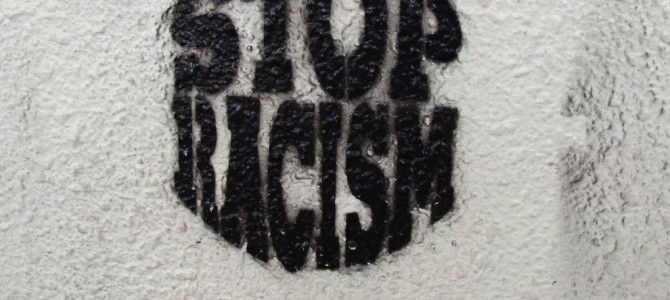Before racism can be fought, a goal seemingly shared by everyone, we have to share a definition of the word. As I have outlined before, there are currently two competing definitions in our society. The traditional one is held by most conservatives, and it roughly says racism is making irrational judgments about people based on their skin color. The newer progressive version focuses on systems and redistribution of wealth and power. A new decision by the Associated Press shows why this new definition veers inevitably to pure racism.
The decision in question is to capitalize “black” when it refers to a person or black culture. Curiously, or perhaps not given the nature of Critical Race Theory, the term “white” in the same context will remain lowercase. Before going any further, the allegation I am making is not one of reverse racism for not capitalizing white; it is one of racism against black people for refusing to treat them as individuals.
To that end, let’s take a look at why the AP thought black but not white required this grammatical amendment. It says, “Most notably, people who are Black have strong historical and cultural commonalities, even if they are from different parts of the world.” This is absolutely bizarre. It suggests that people with black skin in Nigeria, the Caribbean, and the United States somehow have more in common culturally than people from Ireland, Poland, and the United States. Of course, this assertion is not backed up with any real evidence because there is none.
Not only is this assertion laughable on its face, but it is also remarkably condescending to the many unique cultures of the world created by black people. For some reason, the AP thinks Irish and Italian culture stand alone, distinct enough to mean that the Irish and the Italians are not really part of a larger cultural group. But for some other reason, Jamaican and Ghanaian cultures are not distinct enough to warrant the same treatment, they just get lumped together as black.
In fact, the AP kind of gives this game away later in the guidance when it writes, “capitalizing the term white, as is done by white supremacists, risks subtly conveying legitimacy to such beliefs.” Clearly, it is insane to give white supremacists a veto on how we use language, but it also basically negates the cultural argument made above, since if that argument were true, they would not need to resort to this one.
What is happening here grammatically is that the word black is being changed from an adjective to a proper noun, while the term white is not. So when the AP refers to a “white person” they are merely noting the color of their skin, not suggesting that their skin color represents any social, cultural, or political meaning. When they now refer to a “Black person,” they are doing the opposite. They are insisting that the person’s skin color tells us important information about them culturally. That is, to put it simply, racist.
Ultimately, this Orwellian linguistic sleight of hand is about power, not giving power to black people mind you, but giving power to those who would seek to divide us by race and to pigeonhole hundreds of millions of black people with different cultures, languages, cuisines, art forms, and religions into a single group. To put it more bluntly, all black people are alike; all white people are not.
One thing that leftists who engage in this racial newspeak are doing is giving white people vastly more latitude to define themselves without appeal to their skin color. Just as Joe Biden believes that nobody who votes for Donald Trump is really black, the AP guidance insists that black people all share cultural traits and ideologies. As usual, the point here is to tell black people who they are and what they believe while leaving white people to make those decisions for themselves.
The good news is that unless you work for the AP or an outlet that adopts the guideline, you are free to ignore it, as you should. As our woke institutions attempt to shove increasingly bizarre racist rules down our throat, we are learning that we are under no obligation to swallow them.
Here at The Federalist, for example, you can trust that we will continue to treat individuals as such, regardless of their skin color. The worst thing the wokesters can do is call us racist, but if people engaged in actual, literal racism are calling you a racist for not capitalizing a letter, you can be pretty sure you are on the right side.









